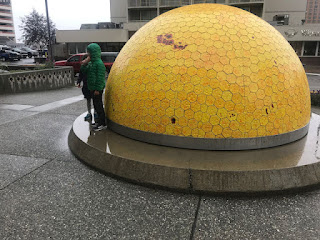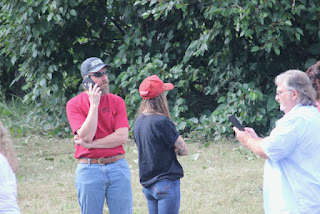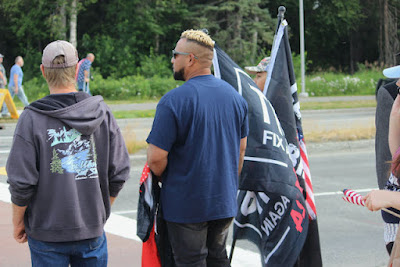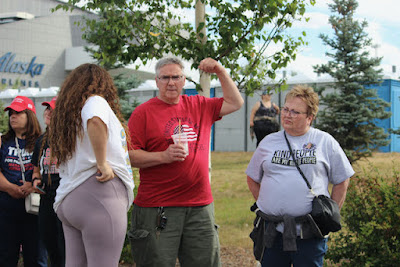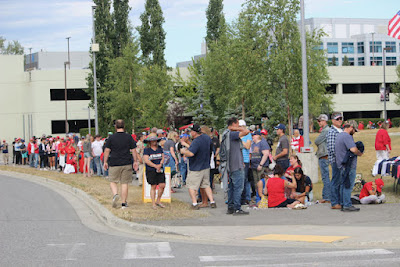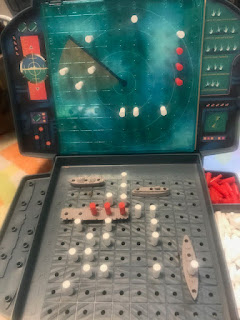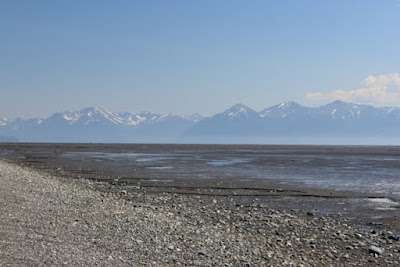The phrase, "Everything is impossible until it is done" often attributed to Nelson Mandela among others, tells us not to give up hope that we can accomplish something. It's a positive inspiration for people fighting to elect sensible politicians or to change oppressive laws. Surely the Supreme Court decision declaring the right to gay marriage is an example of the truth of that quote. Tattoo it on your brain.
But I want to look at the possibility of negative events in this post, which might be more aptly said, "Everything is impossible until it isn't." NOT taking action because we DON'T think something bad can really happen is a problem.
Below is a short passage from Half Of A Yellow Sun a novel by Chimamanda Ngozi Adichie.
The book portrays the lives of (mostly) upper class, educated Nigerians. Part I is titled "The Early 60s." I'm now in Part II: "The Late Sixties." I'll briefly point out why I think it is relevant to us today for those who may not see in the passage what I see.The narrator, in this chapter, speaks from the perspective of Ugwu, an Igbo, who is the houseboy of Odenigbo who teaches at the university in Nsukka. He is also Igbo though he often speaks to Ugwu in English. Odenigbo is often referred to by Ugwu as Master. Odenigbo hosts weekly afternoon lunches for a small group of faculty - where they have lively discussions about the politics of their newly independent country.
The gathering in the passage is a little different. There had been a recent coup and now there are reports on the radio that the Muslim, Hausa-speaking Northerners are starting to attack the Christian Igbo soldiers who they accuse of tribal favoritism and corruption in the newly independent nation of Nigeria.
"Ever since the second coup some weeks ago, when the Igbo soldiers were killed, he had struggled to understand what was happening, read the newspapers more carefully, listened more closely to Master and his guests. The conversations no longer ended in reassuring laughter, and the living room often seemed clouded with uncertainties, with unfinished knowledge, as if they knew something would happen and yet did not know what. None of them would ever had imagined that this would happen, that the announcer on ENBC Radio Enugu would be saying now, as Ugwu straightened the tablecloth, "We have confirmed reports that up to five hundred Igbo people have been killed in Maiduguri."
"Rubbish!" Master shouted. "Did you hear that? Did you hear that?"
"Yes, sah," Ugwu said. He hoped the loud noise would not wake Baby up from her siesta.
"Impossible!" Master said.
"Sah, your soup," Uguw said.
"Five-hundred people killed. Absolute rubbish! It can't be true." [emphasis added]
I'd note that in the next chapters the slaughter will get even worse.
My sense is that most US citizens are still sitting too comfortably in their lives to believe how close we are to the impossible. Or maybe a little too uncomfortably to believe things could really get even worse. They are telling people like me not to be alarmists. Things always work out.
Well, until they don't.
In May 2020, Trump said Trump said keeping US deaths to 100,000 would be a ‘very good job.’ Over a million people in the US died of COVID. Where's the outrage? Well, the million who died aren't here to complain. And while their families were affected, most of us didn't have physical contact with all those dead bodies. The deaths were spread out geographically. But let's consider how many people died. The ten largest cities in the US have populations above 1 million.
But the next ten, if all those deaths took place in their cities, would have been wiped out!
Source: https://worldpopulationreview.com/us-cities
It would have a lot more impact if the deaths had been geographically concentrated in any of these cities. The whole population would be gone! Ghost town.
We still don't comprehend the enormity of the disaster. And because we refuse to even wear masks, we continue to offer our bodies as breeding ground for the virus. Even if we have no symptoms, we give the virus a host where rest and mutate into newer and potentially even more deadly variations.
But perhaps the biggest catastrophe waiting to happen is the loss of our democracy. Women have already had a basic human right ripped away from them. Now far right legislators are trying to limit their right to interstate travel. If the Supreme Court next fall cedes all voting decisions to state legislatures, Republican legislatures will gerrymander their states so that only Republicans can win. They'll change voting laws and procedures so that potential Democratic voters will have a video game worth of obstacles blocking their attempts to vote.
Armed (unregulated) militias could duplicate the slaughters that Odenigbo can't believe are being reported on the radio. If you don't believe that you didn't see any footage of January 6. You don't understand the hate and anger behind the anti-abortion laws. You fail to consider the 320 million guns owned by US citizens. You're not paying attention to regular mass shootings - there have already been 48 in the US in July 2022 and today is only July 17!
Some US citizens understood the gravity of things when they watched the January 6 insurrection. Others while listening to the Congressional Jan 6 hearings. But most people seem to be incapable of believing a fascist takeover of the United States could really happen. Their image of the US as the land of democracy and freedom blocks the image of an authoritarian take over. No government in history has not eventually fallen. Despite the talk of American exceptionalism, we aren't any different.
Some people may think that they are law abiding white citizens so they'll be fine. Only bad people have to worry.
And many might imagine the worst, but can't imagine they have the power to do anything about it. That's understandable and curable.
We all need to keep these two quotes visible:
EVERYTHING IS IMPOSSIBLE UNTIL IT IS NOT.
To remember that losing our democracy is very possible.
EVERYTHING IS IMPOSSIBLE UNTIL IT IS DONE.
To remember that we can work to preserve our democracy and defeat those who want to kill it.
The most immediate thing you can do is make sure as many people as possible vote blue. Don't believe me? Stacy Abrams got enough blue voters registered and to the polls in Georgia in 2022 to give its electoral college votes to Biden and to replace two Republican US Senators with Democrats. She did it by planning and hard work. There are many organizations working hard to duplicate that kind of work. In 2020, nearly 2/3 of eligible voters voted. That was a presidential election year when more people vote. It was a record high. But it means that 1/3 of voters did NOT vote.
You can help find those non-voters and encourage them to vote blue. Here are some organizations working on that.
Six Organizations Getting People to Vote and How to Help Them
Fearless Action is a youth led group getting people to vote.
The League of Conservation Voters
Fascist/authoritarian takeover isn't inevitable. But the fact that majority of the Republicans in the House and Senate won't say that Biden won the election, but instead are denying the insurrection, and are attacking the January 6 investigation, and doing nothing to prevent it from happening in 2024 is not a good sign.
While the 2022 election is critical to maintaining a democracy, the larger threat looming over the world is Climate Change. While a growing number of people are convinced that climate change is real, they aren't willing to fight hard to slow it down. Every day of delay means more extreme climate change impacts and more suffering of all living creatures on the planet. (Well, there probably will be some creatures who will find a way to thrive in the new earthly reality.)
I'm guessing the title of the book is related to the flag of the short-lived breakaway country of Biafra.


